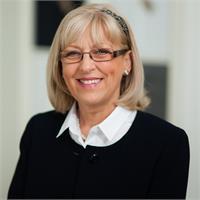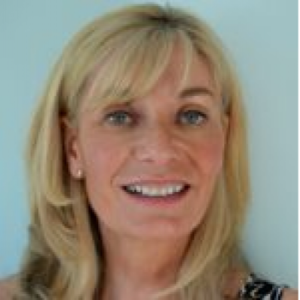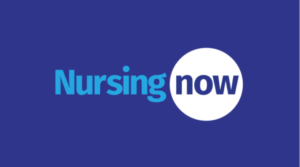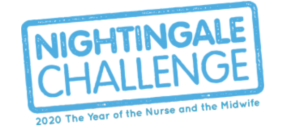Catherine Best @CBest_23
Honorary Visiting Lecturer in Nursing University of Bradford
Queen’s Nurse
Chair Yorkshire and Humber Regional Board RCN
Chair Communications Committee Sigma, Phi Mu (All England) Chapter
Heather Henry @heatherhenry4
Queen’s Nurse
Independent public health nurse and entrepreneur
In July 2019 the Phi Mu (All-England) Chapter of Sigma Theta Tau International (Sigma) held its annual conference at Oxford Brookes University, the theme; ‘Nursing: A Profession without Borders’. This conference shone a vibrant light on the significant contribution that nurses make to the delivery of safe and effective care and in particular recognised the unique contribution nurses make to public health and in reducing the impact of health inequalities; no more evident than by the recent call by the World Health Organisation (WHO) Director-General Dr Tedros Adhanom to ensure we invest in a stronger nursing workforce.
In 2020 we celebrate the Year of the Nurse and the Midwife
‘a once in a generation opportunity to put nurses and midwives at the centre of national and global health policy, and to celebrate all that the nursing profession does to improve health across the world’
This year not only marks a new decade but also recognises the unique contribution nurses and midwives make to global nursing and global healthcare.
Contributing to this significant milestone in nursing history is the UK All Party Parliamentary Group, Triple Impact Report, which set the scene for the Nursing Now Campaign. As a collaborating partner the WHO declared that the ultimate aim of this campaign ‘is to improve health globally by raising the status and profile of nursing, demonstrating what more can be achieved by a strengthened nursing profession, and enabling nurses to maximize their contribution to achieving universal health coverage’.
Driving the campaign to ensure we have high quality nurse leaders is the Nightingale Challenge, the intention of which is to enable nurses to lead and thrive in an often paternal and oppressed professional role and to strike forward to remove the significant gender barriers that continue to exist.
It is also recognised that nurses can play a significant role in supporting the UN Sustainable Development Goals. By optimising their role nurses and midwives can help to ensure that universal health is achieved for all.
In the UK the importance of ensuring the healthcare workforce is fit for purpose has been outlined in a number of reports including The health care workforce in England, The Nursing Workforce and the long awaited, NHS Long-Term Plan. A further report identifies that we are at a critical moment as the impact of nursing shortages in particular begin to bite.
But it requires much more than reports; it requires a whole systems approach, one which seeks to encourage collaboration and co-production with a wider audience, including those we serve as nurses and midwives; and which seeks to break down the borders of those often seemingly, insurmountable challenges faced.
So, as well as looking at the geographic interpretation of ‘nursing without borders’, the Triple Impact report reminds us that, as nurses, we come into nursing from our communities; we serve our communities; our wages bring income into the family home and emancipates women. As we approach the Year of the Nurse and the Midwife, this may be an appropriate moment to consider co-production more often as a solution to many of the problems faced.
As the challenges in health and care become more complex, often stemming from social rather than clinical origins, isn’t it time that those with the lived experience, partner with nurses and midwives to find new solutions to some of the ‘wicked’ problems identified?
The thrust towards a social model of health, evidenced by the widespread introduction of social prescribing, is a positive sign, yet often the power still resides with professionals. The Year of the Nurse and the Midwife in 2020 is a great opportunity to celebrate not only the great things we do, but also appreciate and engage the assets and strengths of our patients, carers, people and communities – our most natural allies.
Poll after poll tells us that nurses are the most trusted profession. If citizens join forces with nurses and midwives to address issues around staffing concerns, poor pay, underappreciation of our skills, safety concerns and more, then our voice will become stronger. If we share the Nightingale Challenge with citizens, whose children are our future nursing leaders, will this strengthen our campaign?
So, in the often-challenging worlds we live in why be a nurse?
For centuries, people have been called to nursing. To feel that you have made a difference in someone’s life is surely one of the most powerful feelings one can have. Yet nurses tend to be modest about sharing their achievements, compared to other professions. We keep people well through immunisation campaigns; we develop our role to enable people to live at home, through the use of home ventilated systems for example, we support employees and employers to attain a full and productive workforce, as occupational health specialists and we care for the dying and we do so much more.
The year 2020 must be the year when as nurses we create a mighty roar about our achievements and capabilities; whilst matching these to the strengths within our communities and ultimately, encourage all citizens to roar with us.




